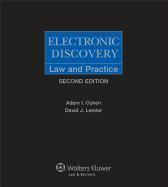- Start
- Foreign Intelligence Surveillance Act
Foreign Intelligence Surveillance Act
Angebote / Angebote:
The Foreign Intelligence Surveillance Act (FISA), 50 U.S.C. § 1801 et seq., as passed in 1978, provided a statutory framework for the use of electronic surveillance in the context of foreign intelligence gathering. In so doing, Congress sought to strike a delicate balance between national security interests and personal privacy rights. Subsequent legislation expanded federal laws dealing with foreign intelligence gathering to address physical searches, pen registers and trap and trace devices, and access to certain business records. The USA PATRIOT Act of 2001, P.L. 107-56, made significant changes to some of these provisions. Further amendments were included in the Intelligence Authorization Act for Fiscal Year 2002, P.L. 107-108, and the Homeland Security Act of 2002, P.L. 107-296, the Intelligence Reform and Terrorism Prevention Act, P.L. 108-458, the USA PATRIOT Improvement and Reauthorization Act of 2005, P.L. 109-177, and the USA PATRIOT Act Additional Reauthorizing Amendments Act of 2006, P.L. 109- 178. In addressing international terrorism or espionage, the same factual situation may be the focus of both criminal investigations and foreign intelligence collection efforts. Some of the changes in FISA under these public laws are intended, in part, to facilitate information sharing between law enforcement and intelligence elements. In its Final Report, the 9/11 Commission noted that the removal of the pre-9/11 "wall" between intelligence and law enforcement "has opened up new opportunities for co-operative action within the FBI." P.L. 110-55 limits the construction of the term "electronic surveillance" so that it does not cover surveillance directed at a person reasonably believed to be located outside the United States. It also creates a mechanism for acquisition, without a court order under a certification by the Director of National Intelligence (DNI) and the Attorney General, of foreign intelligence information concerning a person reasonably believed to be outside the United States. The Protect America Act provides for review by the Foreign Intelligence Surveillance Court (FISC) of the procedures by which the DNI and the Attorney General determine that such acquisitions do not constitute electronic surveillance. In addition, P.L. 110-55 authorises the Attorney General and the DNI to direct a person with access to the communications involved to furnish aid to the government to facilitate such acquisitions, and provides a means by which the legality of such a directive may be reviewed by the FISC petition review pool. A decision by a judge of the FISC petition review pool may be appealed to the Foreign Intelligence Surveillance Court of Review, and review by the U.S. Supreme Court may be sought by petition for writ of certiorari.
Folgt in ca. 10 Arbeitstagen




